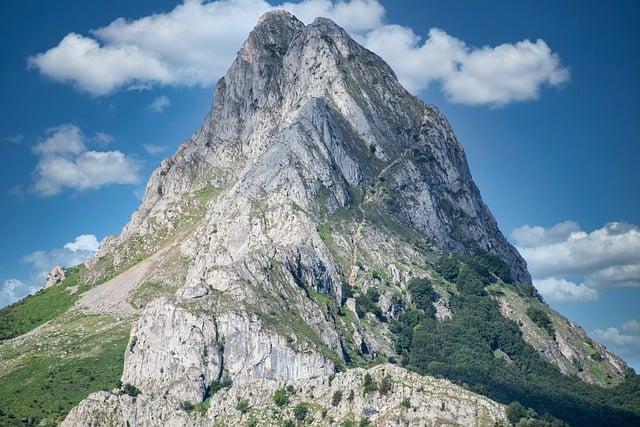Strengthening Disaster Resilience: Mozambique and Tanzania Unite for Enhanced Preparedness
In a decisive effort to boost regional disaster resilience, Mozambique and Tanzania have embarked on a strategic partnership aimed at improving early warning systems and disaster readiness. This alliance, spotlighted by the United Nations Office for Disaster Risk Reduction (UNDRR), is designed to enhance both countries’ abilities to anticipate, prepare for, and respond effectively to natural calamities exacerbated by climate change. Facing escalating environmental risks such as cyclones, floods, and droughts—Mozambique experienced Cyclone Freddy in 2023 causing widespread devastation—these nations are prioritizing collaboration that leverages shared expertise, resources, and technology.
This initiative exemplifies proactive South-South cooperation within Africa’s broader climate adaptation framework. By pooling knowledge and coordinating efforts across borders, Mozambique and Tanzania aim not only to protect vulnerable communities but also to promote sustainable development amid growing climatic uncertainties.
Core Elements of the Mozambique-Tanzania Disaster Preparedness Partnership
The joint commitment between these two countries centers on several pivotal areas designed to fortify their disaster management capabilities:
- Collaborative Emergency Drills: Regularly scheduled simulations test inter-agency coordination during crises while identifying gaps in response mechanisms.
- Real-Time Data Exchange Systems: Deployment of integrated platforms enables swift sharing of meteorological data and hazard alerts across borders.
- Capacity Development Programs: Targeted training initiatives empower local responders and community members with practical skills tailored to regional hazards.
This cooperative framework serves as a model for other African nations confronting similar environmental threats. Recent strategic discussions have paved the way for establishing a regional disaster response network, which will streamline cross-border assistance during emergencies through initiatives such as:
| Initiative | Description |
|---|---|
| CROSS-BORDER WORKSHOPS | Create forums where officials exchange best practices in risk assessment and emergency management techniques. |
| CIVIC ENGAGEMENT PROGRAMS | Energize grassroots participation by educating communities about preparedness measures specific to their locales. |
| MAPPING OF CRITICAL RESOURCES AND RISKS | Delineate vulnerable zones alongside essential infrastructure assets prone to disasters for targeted interventions. |
UNDRR Perspectives: Advancing Early Warning Systems Across Africa Through Cooperation
The UNDRR underscores that effective South-South partnerships like this one are vital in addressing Africa’s disproportionate exposure to climate-induced disasters. Drawing from shared experiences between Mozambique and Tanzania enhances collective preparedness strategies while fostering innovation in early warning technologies. Key recommendations from UNDRR include:
- Inclusive Community Participation: Engaging local populations ensures warning systems reflect unique vulnerabilities while promoting trustworthiness of alerts delivered;
- Diversified Technological Solutions: Incorporating satellite monitoring tools alongside mobile alert applications accelerates dissemination speed during emergencies;
- Synchronized Regional Efforts: Coordinated resource allocation strengthens frontline responders’ capacity across national boundaries;
A robust institutional foundation is equally critical according to UNDRR guidelines; this encompasses policy formulation that embeds disaster risk reduction into national agendas along with continuous capacity enhancement programs focused on local authorities. Additionally, systematic monitoring frameworks enable ongoing evaluation of early warning effectiveness leading toward adaptive improvements over time (see table below):
| Institutional Aspect | Importance |
|---|---|
| NATIONAL POLICY FRAMEWORKS | Provide legal mandates ensuring sustained funding & political support for DRR activities; |
| CAPACITY ENHANCEMENT INITIATIVES  < td >Equip stakeholders at all levels with technical know-how required during crises;< / td > < / tr > < tr > < td >< b >PERFORMANCE MONITORING & EVALUATION SYSTEMS < td >Enable data-driven adjustments enhancing system responsiveness over time.< / td > < / tr > Strategies To Maximize Impact Of South-South Collaboration In Disaster Management ÂMozambique’s partnership with Tanzania can be further strengthened through deliberate actions aimed at optimizing information flow among government agencies, civil society groups, academia,and affected communities alike. Establishing well-organized communication networks will foster an environment conducive not only for rapid information sharing but also mutual learning from past events. Supporting community-led drills encourages ownership over preparedness processes thereby increasing resilience at grassroots levels. Finally,a pooled funding mechanism dedicated exclusively towards joint projects could unlock new financial resources enabling scalable interventions benefiting both countries simultaneously — strengthening solidarity whilst delivering tangible outcomes directly impacting vulnerable populations affected by recurrent natural hazards.. Conclusion: Building Resilience Through Unity And Innovation In Southern Africa Â
The enhanced collaboration between Mozambique and Tanzania represents a landmark advancement toward mitigating the devastating effects wrought by increasingly frequent natural disasters linked with climate change impacts throughout southern Africa. As extreme weather events continue posing existential threats worldwide,their unified approach demonstrates how solidarity combined with knowledge-sharing can safeguard lives whilst nurturing sustainable development goals locally—and potentially inspire neighboring regions facing analogous challenges—to adopt similar frameworks fostering resilient futures globally. |







